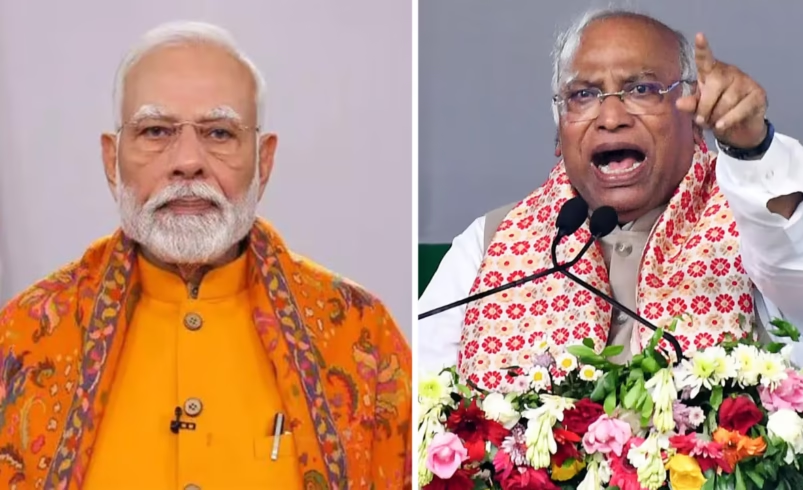Kharge Criticizes Modi Government Over US Trade Tariffs
- August 7, 2025
- 0

Congress President Mallikarjun Kharge has launched a scathing attack on the Modi government following the United States’ decision to impose a 50% trade tariff on India. Kharge described this development as a significant foreign policy failure, emphasizing that the government has not adequately safeguarded India’s economic interests. He argued that this situation cannot be blamed on the previous 70 years of Congress rule, highlighting the current administration’s responsibility in managing international relations and trade policies.
The imposition of such high tariffs by the US is expected to have far-reaching implications for several critical sectors in India, particularly Micro, Small, and Medium Enterprises (MSMEs) and agriculture. These sectors are vital to India’s economy, providing employment to millions and contributing significantly to GDP. Kharge expressed concern that the increased tariffs could lead to reduced competitiveness of Indian products in the US market, potentially resulting in decreased exports and financial strain on these industries.
In response to the US tariffs, India’s Ministry of External Affairs labeled the move as “unfortunate,” indicating diplomatic discontent. The ministry is likely to engage in discussions with US counterparts to address this issue and seek a resolution that minimizes adverse effects on Indian businesses. The government’s ability to negotiate effectively will be crucial in mitigating the impact of these tariffs and restoring favorable trade conditions.
Kharge’s criticism reflects broader political tensions between Congress and the ruling party regarding economic management and foreign policy strategies. As India navigates this challenging situation, the government’s approach to resolving trade disputes will be closely scrutinized by both domestic stakeholders and international observers. The outcome of these efforts will play a significant role in shaping India’s future trade relationships and economic stability.